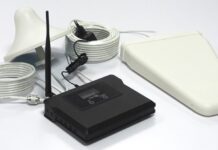ZTE has launched the industry’s first LTE BeamHop Solution and demonstrated the LTE A8808 Active Antenna System (AAS) product based on this technology at Mobile Asia Expo.
The product is a major breakthrough particularly for the high-end European and U.S. wireless markets, giving operators the ability to quickly and easily benefit from LTE by leveraging their existing 2G and 3G base stations.
Based on the LTE BeamHop Solution, the A8808 product consists of both active and passive antennae. The passive part replaces operators’ existing 2G and 3G antennae, while the active part is used for the newly added LTE network. Since the LTE radio unit is integrated into the existing antenna, the new LTE network can be deployed without purchasing any additional antenna site space, reducing installation costs and maximizing existing resources. This product is especially beneficial to operators competing in developed markets where the cost of renting antenna site space is high.
“The new ZTE LTE BeamHop AAS solution enables ‘one deployment, two networks and flexible coverage,’” said ZTE Vice President Wang Shouchen. “This solution increases the transmission power of the base station and the sensitivity of the receivers, which significantly boosts network capacity and coverage. This BeamHop solution will help operators smoothly transition from 2G and 3G to LTE, without adding new antenna space. In turn, that will greatly reduce construction costs and accelerate commercial progress.”
Shouchen added “ZTE is firmly committed to innovation and developing customized solutions; every year ZTE invests 10% of revenue in research and development. LTE BeamHop is just one of the many industry leading technological breakthroughs to be developed as a result of ZTE’s focus on innovation.”
As a world leading wireless telecommunications solutions provider, ZTE Corporation has been increasing its investments in LTE and future technologies and maintains its leading position in the industry. By the first quarter of 2012, ZTE had signed 30 commercial contracts and collaborated with more than 100 operators to conduct LTE trials in Europe, the United States, Asia Pacific and the Middle East.




















